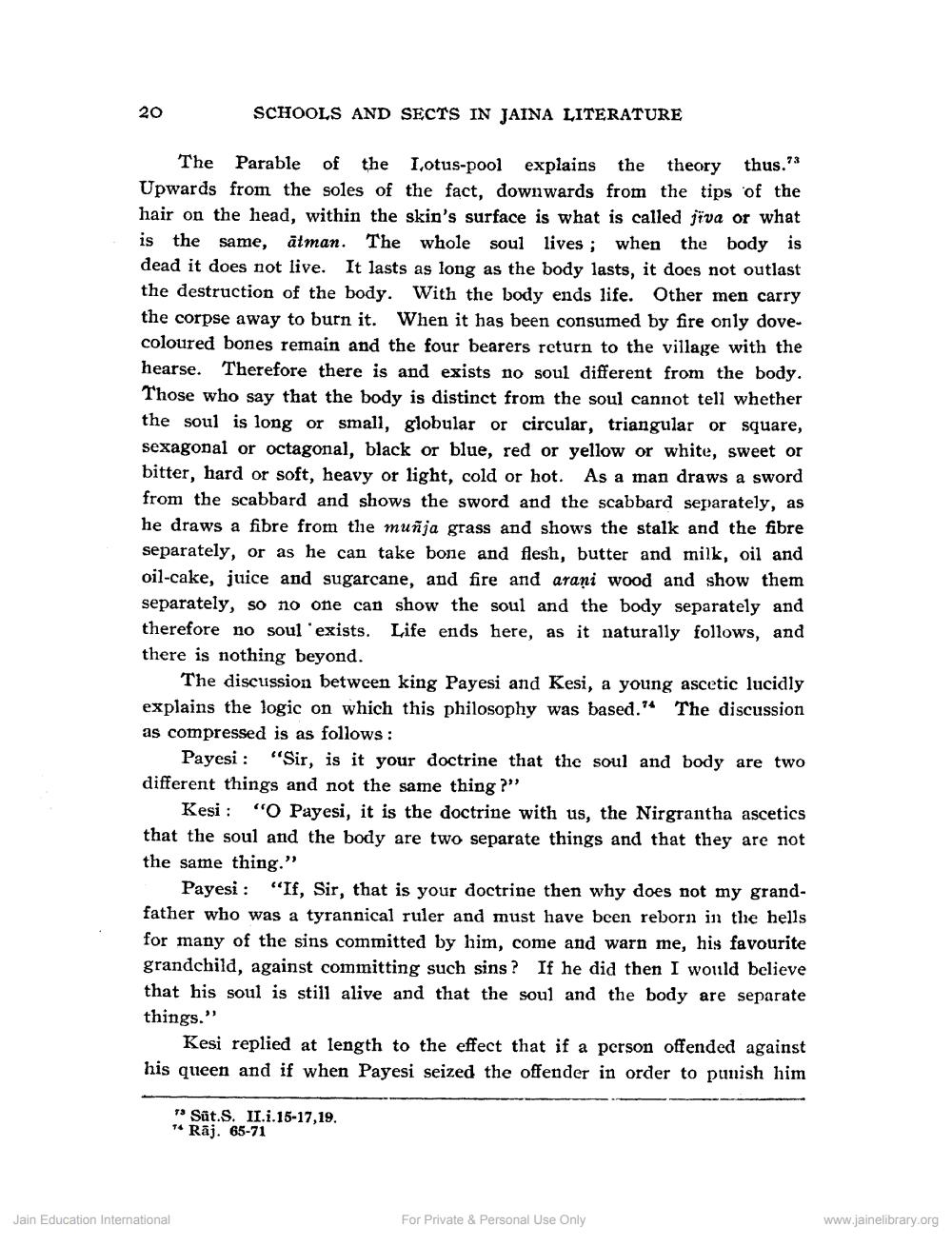________________
SCHOOLS AND SECTS IN JAINA LITERATURE
The Parable of the Lotus-pool explains the theory thus." Upwards from the soles of the fact, downwards from the tips of the hair on the head, within the skin's surface is what is called jiva or what is the same, ātman. The whole soul lives; when the body is dead it does not live. It lasts as long as the body lasts, it does not outlast the destruction of the body. With the body ends life. Other men carry the corpse away to burn it. When it has been consumed by fire only dovecoloured bones remain and the four bearers return to the village with the hearse. Therefore there is and exists no soul different from the body.
Those who say that the body is distinct from the soul cannot tell whether the soul is long or small, globular or circular, triangular or square, sexagonal or octagonal, black or blue, red or yellow or white, sweet or bitter, hard or soft, heavy or light, cold or hot. As a man draws a sword from the scabbard and shows the sword and the scabbard separately, as he draws a fibre from the muñja grass and shows the stalk and the fibre separately, or as he can take bone and flesh, butter and milk, oil and oil-cake, juice and sugarcane, and fire and arani wood and show them separately, so no one can show the soul and the body separately and therefore no soul'exists. Life ends here, as it naturally follows, and there is nothing beyond.
The discussion between king Payesi and Kesi, a young ascetic lucidly explains the logic on which this philosophy was based." The discussion as compressed is as follows:
Payesi : "Sir, is it your doctrine that the soul and body are two different things and not the same thing ?”
Kesi: "O Payesi, it is the doctrine with us, the Nirgrantha ascetics that the soul and the body are two separate things and that they are not the same thing."
Payesi : "If, Sir, that is your doctrine then why does not my grandfather who was a tyrannical ruler and must have been reborn in the hells for many of the sins committed by him, come and warn me, his favourite grandchild, against committing such sins? If he did then I would believe that his soul is still alive and that the soul and the body are separate things."
Kesi replied at length to the effect that if a person offended against his queen and if when Payesi seized the offender in order to punish him
* Süt.S. II.1.15-17,19. ** Rāj. 65-71
Jain Education International
For Private & Personal Use Only
www.jainelibrary.org




